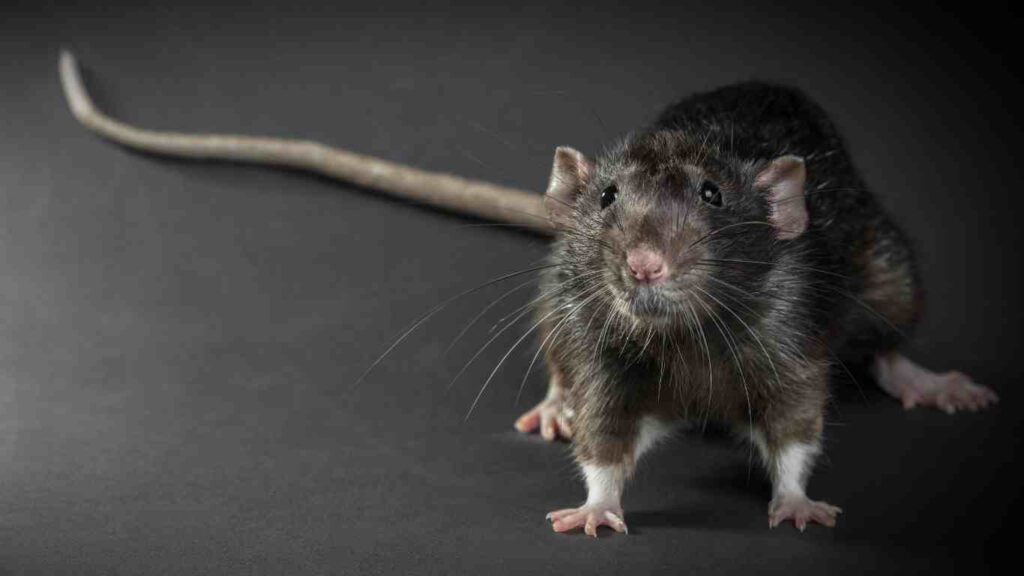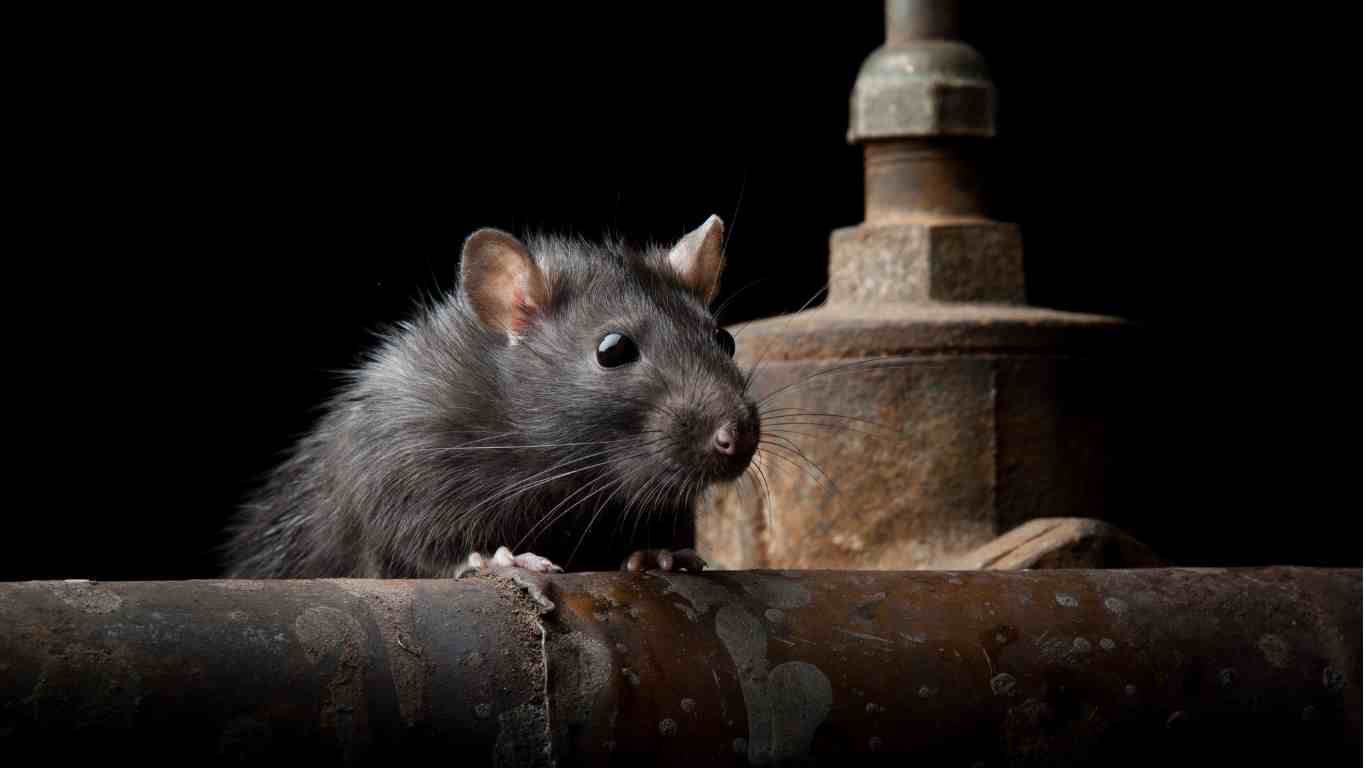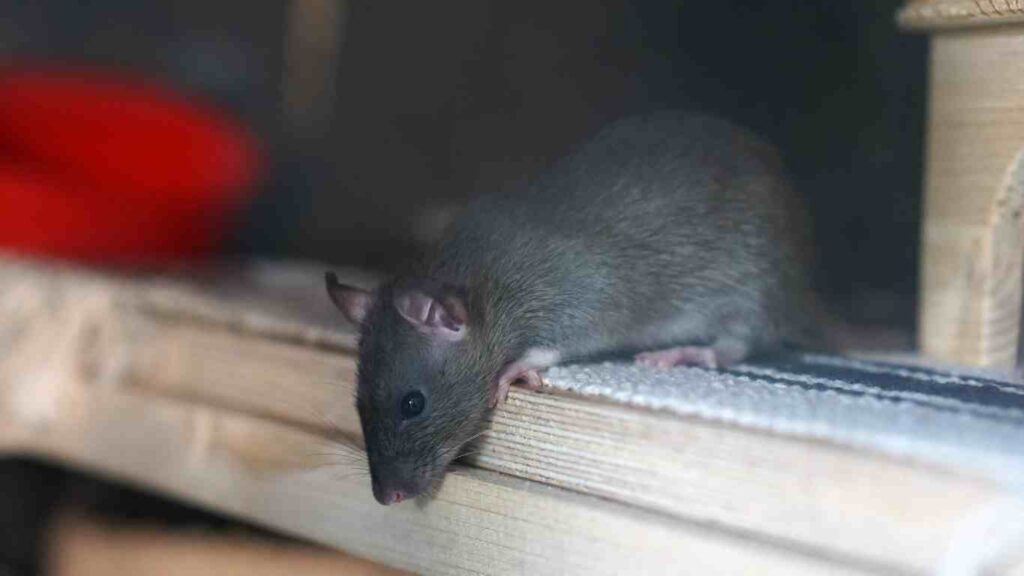Rodents are some of the most persistent and destructive pests in Northern California homes and businesses.
With the region’s mild climate and urban sprawl, rodents thrive year-round, causing property damage, contaminating food, and spreading diseases.
Whether you’re a homeowner in the Bay Area or a business owner in Sacramento, understanding the types of rodents most common to Northern California—and how to control them—is essential.
In this article, we’ll cover the most common rodents found in Northern California, the risks they pose, and effective ways to eliminate them and prevent their return.
The Most Common Types of Rodents in Northern California

Northern California’s climate creates the perfect habitat for a variety of rodents. Below are the species most likely to invade your home or property:
1. Norway Rats (Rattus norvegicus)
Also known as sewer rats or brown rats, Norway rats are large, robust rodents that thrive in urban areas. They are commonly found in basements, crawl spaces, and around outdoor garbage bins.
Characteristics:
- Size: 7-9 inches long (not including the tail)
- Appearance: Brown or gray fur, small ears, and a blunt nose
- Habitat: Burrowers; often live in basements, under buildings, or in piles of debris
Dangers:
- Spread diseases like leptospirosis and hantavirus
- Gnaw on wood, plastic, and electrical wires, posing a fire hazard
- Contaminate food and surfaces with their droppings
2. Roof Rats (Rattus rattus)
Roof rats, also known as black rats, are agile climbers often found nesting in attics, trees, and upper levels of buildings.
Characteristics:
- Size: 6-8 inches long (not including the tail)
- Appearance: Sleek black or dark brown fur, pointed nose, and large ears
- Habitat: Prefer higher ground, such as roofs, attics, and trees
Dangers:
- Spread diseases like salmonella and bubonic plague
- Can damage insulation, wood, and wiring in attics
- Compete with native wildlife for food and habitat
3. House Mice (Mus musculus)
House mice are among the most common rodent invaders in homes. These small but prolific breeders can quickly establish a large infestation.
Characteristics:
- Size: 2.5-4 inches long
- Appearance: Light gray or brown fur with a slightly pointed nose
- Habitat: Indoors and outdoors, often near food sources
Dangers:
- Contaminate food with droppings and urine
- Spread diseases like salmonella and lymphocytic choriomeningitis (LCMV)
- Chew through walls, furniture, and wires
4. Deer Mice (Peromyscus maniculatus)
Deer mice are more common in rural and suburban areas. While they rarely invade urban homes, they can infest sheds, garages, and cabins.
Characteristics:
- Size: 3-4 inches long
- Appearance: Light brown fur with a white underbelly and large eyes
- Habitat: Prefer outdoor areas but may invade indoor spaces in search of warmth
Dangers:
- Primary carriers of hantavirus, which can cause severe respiratory illness
- Contaminate surfaces and food
- Gnaw on structural materials
Signs of a Rodent Infestation
Rodents are nocturnal, so you may not see them directly. However, they leave behind plenty of evidence. Watch for these common signs of a rodent infestation:
- Droppings: Small, pellet-shaped feces near food sources, baseboards, or nesting areas
- Gnaw Marks: Chewed wires, furniture, or wood
- Nests: Shredded paper, fabric, or plant material in hidden areas
- Noises: Scratching or scurrying sounds, especially in walls or ceilings at night
- Tracks: Greasy rub marks or footprints along walls or dusty surfaces
- Unusual Odors: A musty smell caused by rodent urine or droppings
How to Get Rid of Rodents in Northern California
Getting rid of rodents requires a multi-step approach. Here are the most effective methods:
Seal Entry Points
Rodents can squeeze through holes as small as a dime (mice) or a quarter (rats). Inspect your property and seal all potential entry points:
- Use caulk or steel wool to fill gaps around pipes, vents, and utility lines
- Install door sweeps on exterior doors
- Repair damaged screens and weatherstripping
Eliminate Food and Water Sources
Rodents are attracted to accessible food and water. Make your home less inviting by:
- Storing food in airtight containers
- Cleaning up crumbs and spills immediately
- Fixing leaky faucets and drains
- Emptying trash cans regularly and using tight-fitting lids
Call a Professional Pest Control Service
Severe or recurring rodent infestations are best handled by pest control professionals. Licensed technicians can:
- Conduct thorough inspections to identify all nesting sites and entry points
- Use advanced trapping, baiting, and exclusion methods
- Provide long-term prevention plans tailored to your property
Preventing Rodents in the Long Term
Once you’ve eliminated rodents, it’s crucial to take preventive measures to keep them from coming back:
- Maintain Landscaping: Trim back tree branches and shrubs that touch your roof or walls. Keep woodpiles and compost bins at least 20 feet away from your home.
- Inspect Your Property Regularly: Check for new entry points and signs of rodents every few months.
- Schedule Routine Pest Control: Professional maintenance services can help monitor your property and prevent future infestations.
Why Choose OPP for Rodent Control in Northern California?
At Official Pest Prevention, we specialize in rodent control solutions tailored to Northern California’s unique pest challenges. Our team of licensed experts:
- Understands the behavior and biology of local rodent species
- Offers eco-friendly and humane pest control options
- Delivers comprehensive inspection, removal, and prevention services
If you’re dealing with a rodent problem, don’t wait. Contact OPP today for a free inspection and take the first step toward a rodent-free home!
Final Thoughts
Rodents are more than just a nuisance—they pose real risks to your health and property. By understanding the common types of rodents in Northern California and following the prevention and control tips outlined above, you can protect your home or business from these destructive pests.
If DIY methods aren’t enough, OPP’s local pest control experts are here to help. Call us today to schedule your free inspection and get fast, effective rodent control solutions.
FAQ: Common Rodents in Northern California and How to Get Rid of Them
What are the most common rodents in Northern California?
The most common rodents in Northern California include Norway rats, roof rats, house mice, and deer mice. These pests thrive in urban and suburban environments due to the region’s mild climate and abundance of food and shelter.
How can I tell if I have a rodent infestation?
Look for signs such as droppings, gnaw marks, scratching sounds in walls or ceilings, greasy rub marks along walls, nests made of shredded materials, or unusual musty odors. Spotting these indicators early can help you address an infestation before it worsens.
Can rodents cause health problems?
Yes, rodents can carry and spread diseases such as hantavirus, salmonella, leptospirosis, and lymphocytic choriomeningitis (LCMV). They can also contaminate food and surfaces with their droppings and urine, posing a risk to human health.
Why are rodents attracted to my home?
Rodents are drawn to homes that provide easy access to food, water, and shelter. Factors like unsecured trash, leftover pet food, leaky faucets, and structural gaps in walls or foundations can make your property an attractive target.
Are DIY rodent control methods effective?
DIY methods like sealing entry points can work for small infestations. However, for larger or persistent infestations, professional pest control is recommended to ensure complete eradication and prevent future problems.
How can I prevent rodents from returning?
To keep rodents from coming back, follow these tips:
- Seal all potential entry points around your home.
- Store food in airtight containers.
- Keep trash bins sealed and clean.
- Trim vegetation and trees away from your home.
- Schedule routine pest control services for ongoing prevention.
Is professional rodent control worth it?
Absolutely. Professional pest control services not only eliminate the current infestation but also address the root causes of the problem, ensuring long-term protection. Licensed technicians have the expertise and tools to handle infestations safely and effectively.




